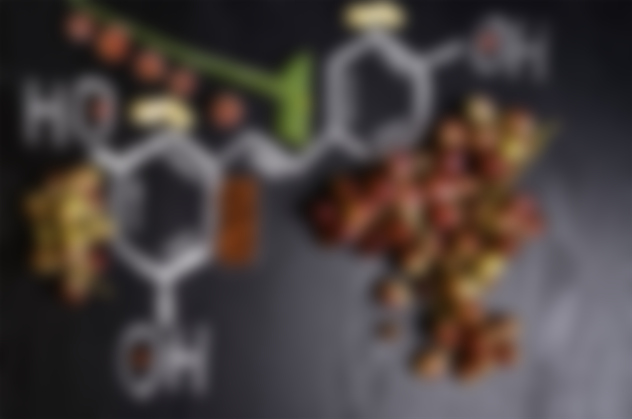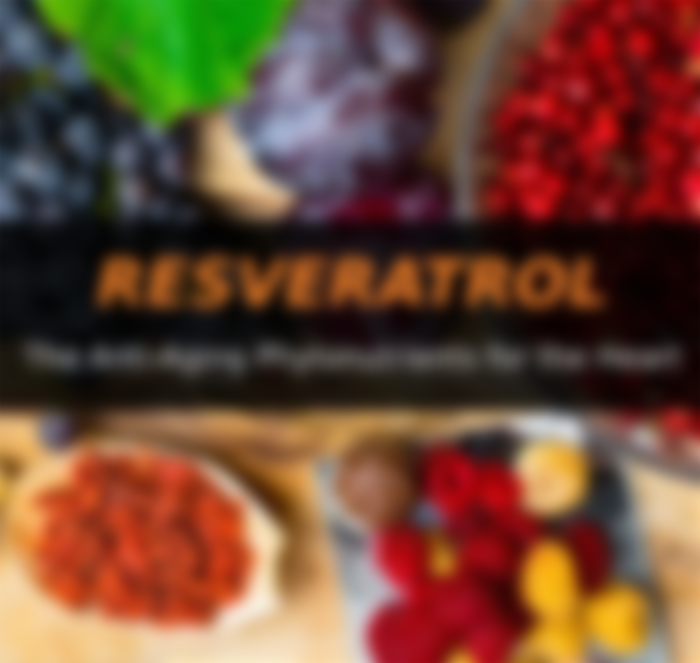Resveratrol is a very powerful antioxidant that belongs to the group of polyphenols, and its active ingredients have long gone beyond the field of cardiovascular protection. Many scientists agree that this active ingredient is one of the greatest discoveries of the last twenty years. In addition to reducing the risk of cardiovascular disease, resveratrol also protects our cells from destructive free radicals, lowers bad and raises good cholesterol, helps reduce the chances of developing diabetes, and gives our cells energy and therefore more in especially great help when dealing with chronic fatigue.

But that's not all: Resveratrol also inhibits the aging of cells and consequently the whole organism. This will be especially pleasing to all of you who are striving to live longer in any way.
What are the best sources of resveratrol?

The best sources of resveratrol are definitely red wine and Japanese knotweed. The latter is said to be the highest quality source of this extremely powerful antioxidant. In addition to red grapes and Japanese knotweed, some resveratrol also contains peanut butter, dark chocolate and blueberries, as well as some types of pine.
Positive effects for our body:
Resveratrol acts directly on our cells, as it increases the activation of the SIRT1 protein, thereby greatly contributing to better cell regeneration, reducing their death and improving their metabolism.
Even before there were studies confirming the effects of resveratrol in maintaining eternal youth, this powerful antioxidant was used in traditional Asian medicine to treat high blood pressure. Resveratrol also has many positive effects on the health of our heart and blood vessels. It reduces the risk of blood clots and regulates blood triglyceride levels.
It also helps with excess fat:
Resveratrol also works well against the accumulation of excess body fat, as it contains a natural compound that can attack fat cells and break them down. In one study, rats ate a high-calorie, high-saturated fat diet, but did not gain weight due to resveratrol consumption - in contrast, rats in the control group did not receive resveratrol.
This miraculous antioxidant has also been shown to be effective in defending against various cancers. It should be noted that quite large amounts of this antioxidant have been used in studies dealing with such effects of resveratrol. Otherwise, resveratrol is associated primarily with a reduced risk of developing cancer of the colon and rectum, which is today one of the most common cancers in our country.
Resveatrol is definitely an antioxidant that deserves all and even more attention given to it. It is now possible to get dietary supplements containing this powerful antioxidant in our market as well.
Where to find resveratrol?
It is found in nature in many plants, but it is mostly found in the skin of red grapes, in red grapes (blueberries, blackberries), in the peel of peanuts, in spruce needles, eucalyptus leaves and in Japanese buckthorn, which is the best natural in addition to grapes. vir.
It is also abundant in red wine, where in the process of squeezing grape juice, the rest of the solid mass, which contains mainly the skin of the strawberry clusters, is not removed immediately. Thus, resveratrol is also excreted into the juice, which is later found in red wine. And why do plants make it at all? Resveratrol is a powerful antibacterial and antifungal agent that protects grapes and other plants from attacks by microorganisms, especially mold.

The French paradox
Did you know that the famous "French paradox" is associated with the action of resveratrol? And what exactly is the basis of the “French paradox”? For decades, health researchers have been wondering why the Mediterranean nations are healthier than other European nations, especially when it comes to cardiovascular disease. At first, it was assumed that the reason for this was the Mediterranean diet, ie a diet rich in vegetables and olive oil.
But after the analysis, they found that the French are equally healthy, who eat a lot of butter instead of olive oil, ie solid saturated fats with a lot of cholesterol. However, they drink a glass or two of wine, especially red wine, at meals. The researchers thus concluded that the French (despite a relatively large amount of saturated fat and cholesterol) have, on average, a healthier heart and blood vessels, which they attribute to resveratrol in red wine, alcohol itself, and rest after meals.
With resveratrol over cholesterol?
It is known to be one of the most powerful antioxidants and activator of many biochemical processes in the body and cells, leading to the protective action of the cardiovascular system. This is probably one of the most likely positive effects of resveratrol, which will be seen with years of taking preparations containing this active ingredient. In experimental animals, it reduced the concentration of "bad" (LDL) cholesterol and corrected the ratio of bad to good cholesterol (HDL). Thus, resveratrol helps to strengthen blood vessel walls and reduce the progression of atherosclerosis.
It also reduces the likelihood of developing pre-diabetic conditions and diabetes, and is also thought to work against the growth of certain cancer cells in animal models and in laboratory conditions.
Resveratrol is a powerful antioxidant in the fight against aging and free radicals
Of course, it is also associated with the eternal theme of rejuvenation, as some antioxidants are said to inhibit the aging process. Physiological aging of tissues and the organism is only one of the factors, and the actual appearance of the body depends on genetics, environmental influences, diseases and the general condition of the organism. Unfortunately, we do not yet know the magic molecule that would significantly rejuvenate us.
Resveratrol in the form of a dietary supplement
Resveratrol is marketed in the developed world, especially in the USA, the EU and Japan, as a dietary supplement.
Photos are taken from google.com.
Greetings to all from @Cutecat



The discovery that it cures diabetes makes everyone crazy in resveratrol 😂